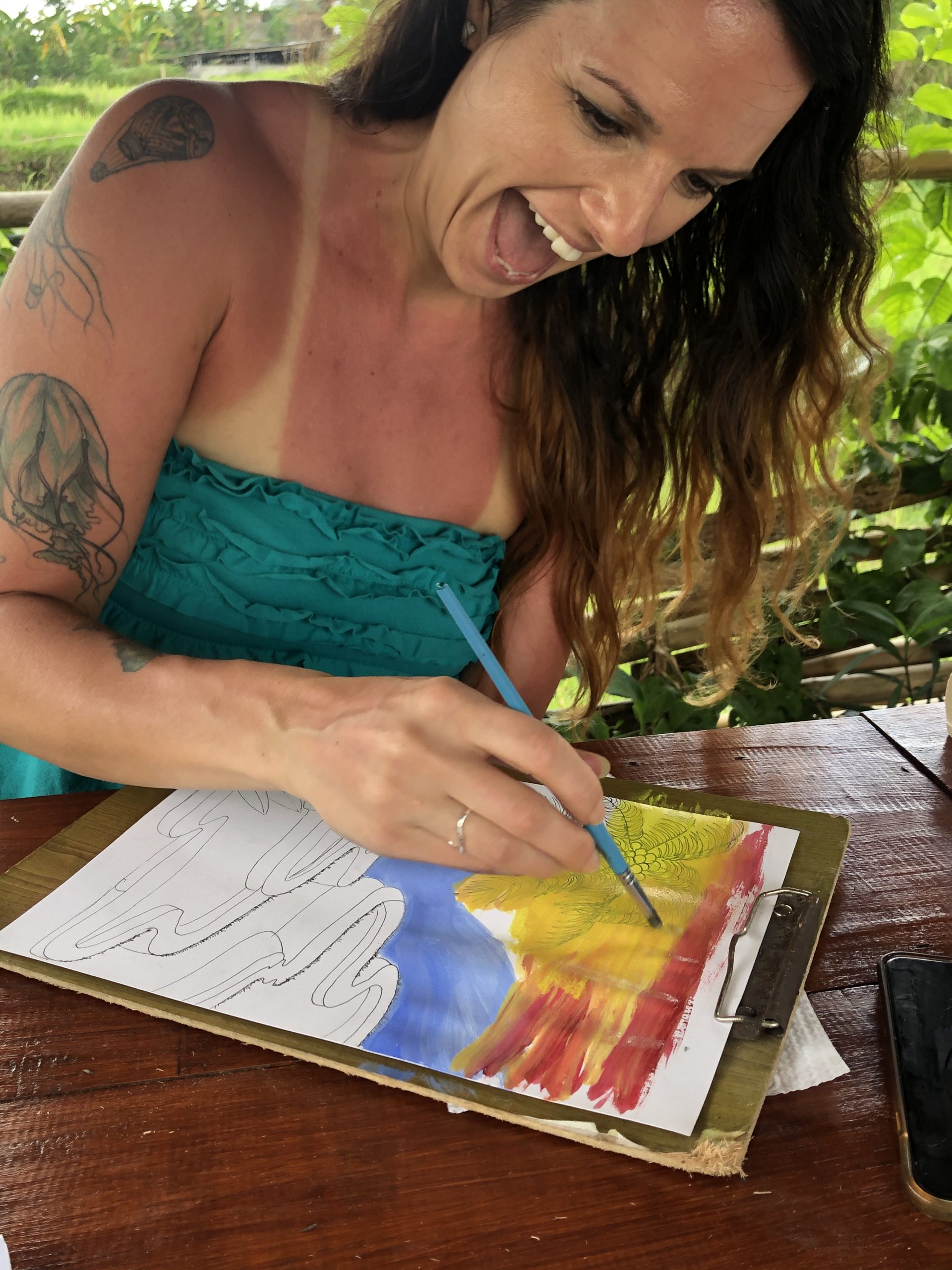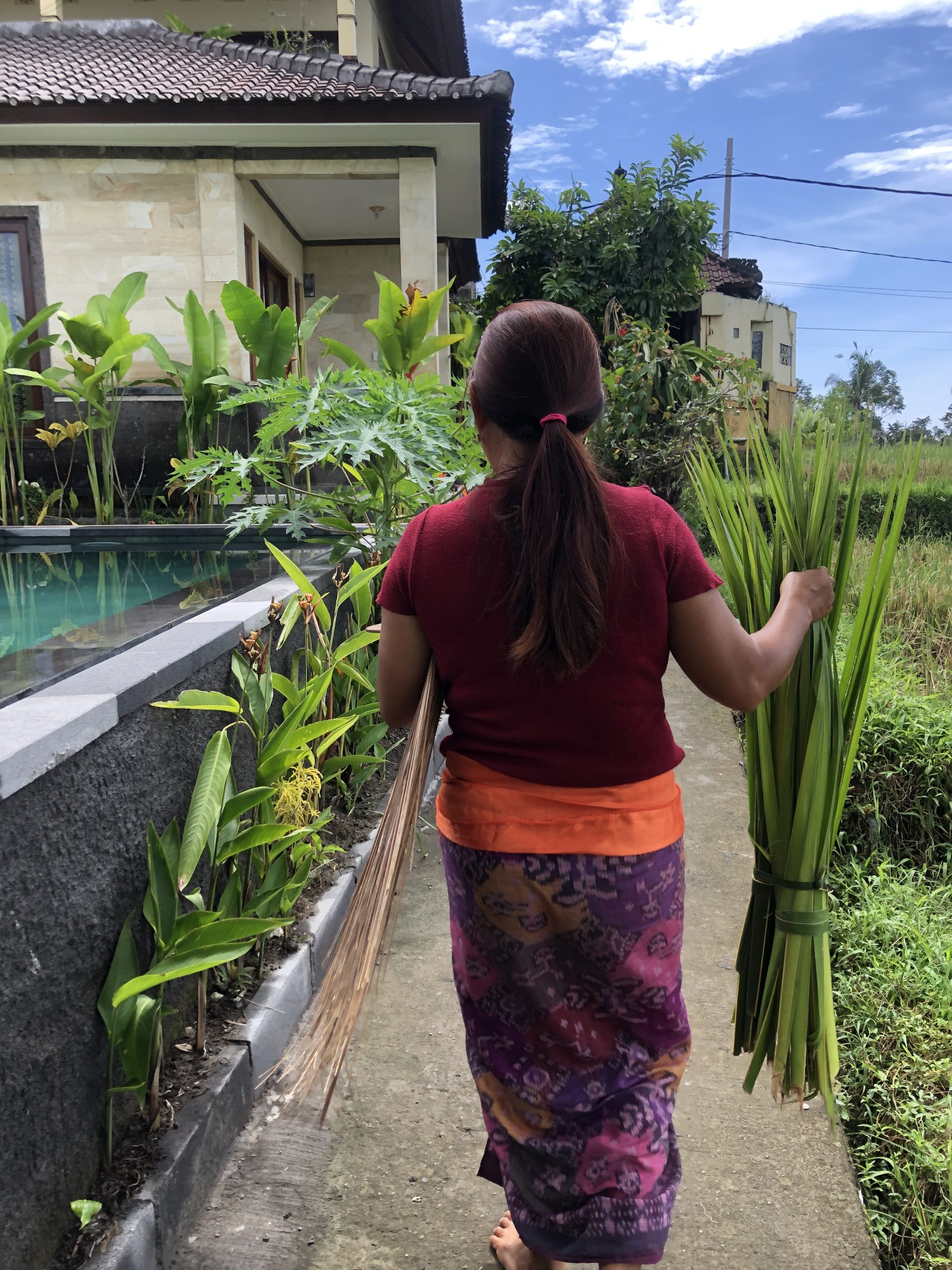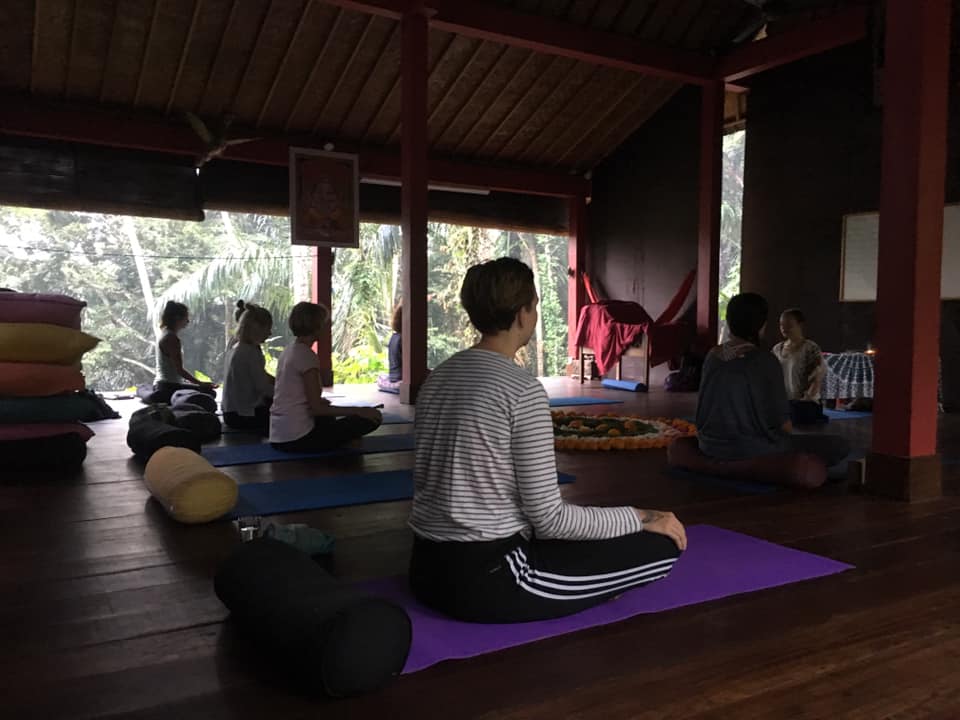
I’m seeking letting go, not Enlightenment, Help!
There is an impulse in us to seek happiness, joy, peace; whatever you choose to call it. When we are sad, we want happiness, it’s natural; it’s our inbuilt desire to return to our true selves. What the Hindu traditions call Ananda “bliss’.
When we feel hurt by someone, it is natural for us to want to return towards a feeling of peace, it’s our inbuilt desire to return to our true selves; Ananda “happiness”.
The world is in crisis, it’s natural for us to want to return to our true selves, it’s an inbuilt force or what the Hindu traditions call Chit “consciousness”, to desire joy.
If I Let Go, won’t I become uncaring, indifferent?
– The whole World
What is letting Go, really?
If we are going to get anywhere here we will have to start with the truth. What the Hindu traditions call Sat “reality or existence”. So, Let’s take a look at this through the lens of Buddhism as they tend to be the masters of understanding ‘Letting go’.
There are many Buddhist branches, with differing beliefs about how to attain Freedom and what liberation is, yet there is one thing they all agree on and that is ‘Letting Go’ of attachments is necessary. And accepting the truth that all is impermanent.
So should i walk out on my partner and kids, let go and find myself. Should I shun the problem’s of the world and go and hang out in Ibiza, chill’n by the palm trees. Or do I need to sit under the Boddhi tree and get eaten by mosquito’s. Of course you can, But who’s going to teach the kids to not be attached to a mosquito bite?

But, attachment is important, I know it is!
The Buddhist principle of non attachment refers to the mind ‘chitta’, not detachment in a physical sense! You don’t have to leave all your possession and loved ones behind, you just need to let go of them. Huh?
For Buddhists ‘Attachment’ is not about forming bonds of love and relationships or renouncing material things completely, like a home or a ones vocation. But, rather refers to the idea of “clinging” or “grasping’ of the mind, within the psyche.
Letting go in the Buddhist sense means to unravel from the false ideas of controlling life, of how things should be, of making our happiness dependent upon them. To not grasp or cling.
So, how do I let Go exactly?
The starting point in Buddhism is beginners mind or Mindfulness. Being mindful doesn’t just mean meditation or filling your mind with positive truths, although this is helpful. It is about being present, being aware, without judgement, fully in the moment. It can be with your partner, your child, your job or your home.
As Thich Nhat Hanh so beautifully puts it :
“I define mindfulness as the practice of being fully present and alive, body and mind united. Mindfulness is the energy that helps us to know what is going on in the present moment.”
Mindfulness is the opposite of nagging thoughts, stewing over things, worrying, ruminating and also avoiding. When you are overthinking or lost in worrying thoughts you are not in truth, in reality. Mindfulness is the practice of coming back into your natural, aware self, your true self

Do I have to Meditate, to be mindful?
Probably, Yes! Most of us from the West have been conditioned within a social structure of overemphasis on the rational or reasoning mind. We have been conditioned over Centuries to think our way through things. Our lifestyles have become so structured around this and the ideas of materialism that we find it hard to even sit still under a tree for five minutes.
So, meditation will be a vital and necessary part of cultivating ones mindfulness. It’s not easy in the beginning and it takes some practice. But, after a regular and sincere practice the neural pathways in the brain will help you out, they will change and respond to your new found quiet mind. Often enhancing the desire for meditation because of the positive benefits the brain detects.
The Buddhist traditions also embrace contemplation. This will become a natural part of your mindfulness. As old clingings, worries and attachments to ideas fall away there will arise a desire for truth, for reality. One will seek to find these truths were ever they can, usually in Buddhist teachings.
Often in Buddhist meditation or contemplation a koan is used. A koan is a saying that has opposing meanings or makes little sense to the rational mind. A koan is meditated upon in attempt to exhaust the analytical mind and the will of the ego, cultivating an appropriate response on the intuitive level. An example is the popular Buddihist practice of contemplating the Koan “The sound of one hand clapping”

“So do I have to become a Buddhist, and let my entire life go, to be happy?
– The whole World
The Middle Path wants to be heard
No, not necessarily. But, if you do meditate and practice being aware in the moment, without judgement and begin to read the Buddhist teachings or go to Meditations or Mindfulness classes, you probably won’t reach Nirvana but you will come across the concept of the Middle Path.
Buddha’s first sermon after his apparent enlightenment was “The Middle way, Four Noble Truths and Eightfold Path ” . He teaches that the Middle path is the way. He does this after spending time in extremes, fasting for long periods till sickness and weakness take over and meditating in rough conditions like in some older Buddhist monasteries whereby mosquitoes can eat the body or the body becomes damaged.
The “Middle Way” refers to a life somewhere between a life of self-torture or harshness and a life of self-indulgence in the material world. His message urged the students to let go of extremes of sensuality, self torment and to follow the harmonious way of the middle path. To overcome craving and unnecessary desire, as a means to end suffering; to be happy.
In the sermon the Buddha said: “These two extremes, O monks, are not to be practiced by one who has gone forth from the world. What are the two? That conjoined with passions, low, vulgar, common, ignoble, and useless, and that conjoined with self-torture, painful, ignoble, and useless. Avoiding these two extremes, [the enlightened one] has gained the knowledge of the Middle Way, which gives sight and knowledge, and tends to calm, to insight, enlightenment, nirvana. [Quoted from A Sourcebook in Indian Philosophy, Princeton University Press, 1957, p. 274.)
So, no you don’t have to become a Buddhist, jut aware of yr self and others, without judgement, in a relaxed way; harmoniously.
I’m tired just thinking about it, Can I go back to sleep?
No, you can’t but you can begin to meditate, it will rejuvenate your body, open your mind and set your soul on fire. But, Buddha didn’t believe in a soul, he called it consciousness.
“Both formerly and now, it is only suffering that I describe, and the cessation of suffering.”
The Buddha (from the Sutta Nipata)
That’s why you will then want to be non-attached to Buddhism and begin to do some research on Yoga and Vedanta. It’s natural for us to want to return to our true selves, it’s an inbuilt force or what the Hindu traditions call Chit “consciousness” to desire Union.
Warm Blessings
Megan
Megan Jackson runs meditation and yoga retreats for women in Bali and Brisbane. She has been immersed in spiritual practice and study for 15 years, living it fully, with humility and compassion as her backbones for progress.
She lives a quiet life reflecting on the dharma and helping others who are wanting change, transformation or spiritual wisdom.
Join her on the Meditation, healing and Yoga retreats in Bali 2020





